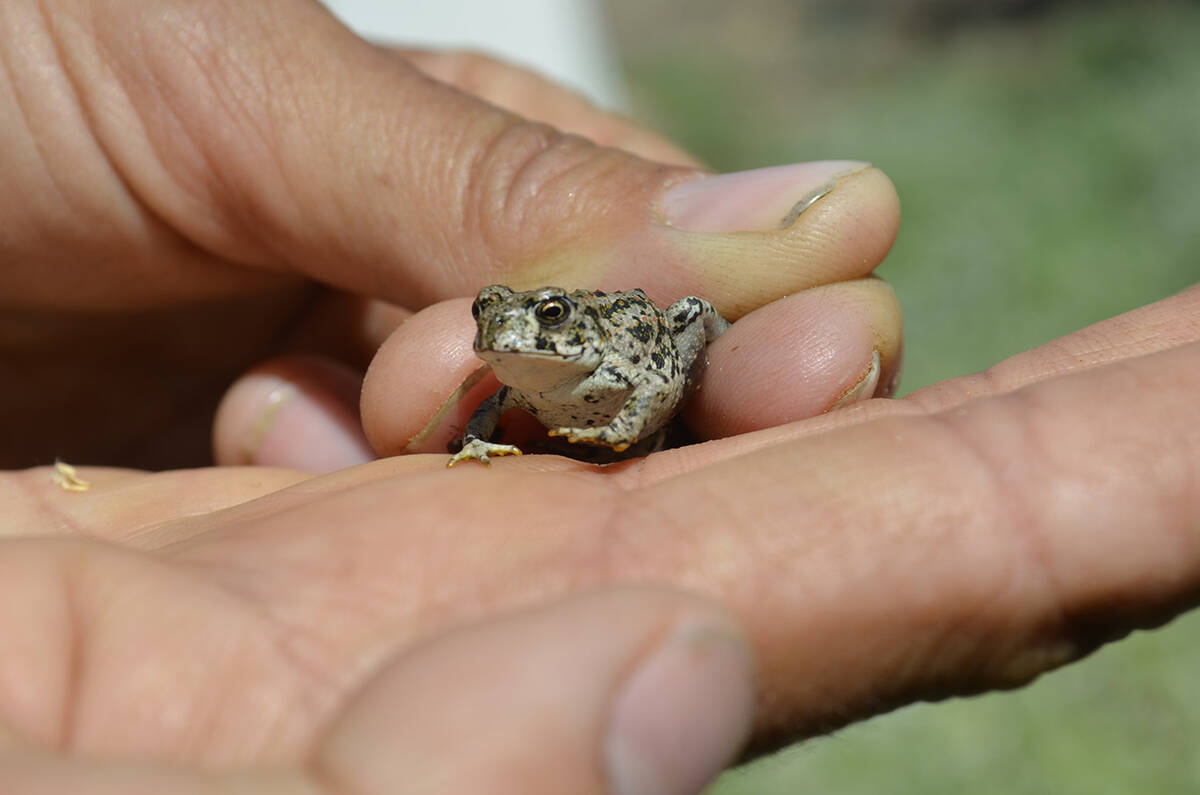Nevada toad could go extinct due to gold mining, petition says
Decades ago, a rural Nye County town rallied behind an unlikely environmental cause — the Amargosa toad.
The small, slimy toad became the unofficial mascot of Beatty when environmentalists sounded alarm bells over the species’ dwindling numbers. Ranchers, scientists and concerned residents formed a working group to find local solutions to preserve the groundwater and freshwater springs on which the toad relies.
But the U.S. Fish and Wildlife Service wasn’t on board when it came to federal protections. Two petitions — one in 1994 and another in 2008 — to list the toad under the Endangered Species Act failed, though local efforts to monitor the toad’s numbers and preserve habitat have persisted.
It’s also considered “critically endangered” by the International Union for Conservation of Nature.
After Wednesday, the federal agency will get a chance to reconsider: The Center for Biological Diversity has filed an emergency petition to list the Amargosa toad as an endangered species. If that happens, the agency would use federal funds and resources to restore the amphibian’s population and preserve its habitat.
The petition claims an estimated 2,000 Amargosa toads are left in the wild.
“Despite [community-led] efforts, the Amargosa toad’s population continues to remain in a highly precarious state, and today faces a new existential threat, which did not exist when previous petitions were under evaluation,” the petition asserts.
The “existential threat” at the heart of the latest argument for federal protections? Seven proposed gold mines that an independent hydrologist has said would lower groundwater levels to an unsustainable level.
One of them is the North Bullfrog Mine, a massive project currently under federal environmental review that would disturb more than 3,000 acres of land in the area.
“Oasis Valley is set to become the epicenter of a vast new gold-mining district, putting huge stress on the delicate aquifer that sustains the Amargosa River and threatening rare species like Amargosa toads who don’t live anywhere else in the world,” Krista Kemppinen, a senior scientist at the center, said in a statement. “The Fish and Wildlife Service really has to act now.”
Why protect a toad?
Gold mining has long been a part of Nevada’s history. Along the delicate Amargosa River in towns like Beatty, biodiversity of species found nowhere else in the world has been, too.
Jaina Moan, of Nevada’s chapter of the global nonprofit The Nature Conservancy, said her organization has worked with Beatty residents since the 1990s to keep tabs on the population. The organization became the largest private landowner in the area after the purchase of two ranches to preserve water resources and species in Oasis Valley.
New mines, Moan said, could wreck decades of conservation work that represents millions of dollars.
“We’re really fearful that they could pose a threat to the toad, other at-risk species and all of this conservation work that’s taken a lot of work to do,” Moan said.
Whether the Fish and Wildlife Service will see a scientific argument for awarding protections remains to be seen.
Mining in general has the potential to affect not only species like the toad but homeowners who rely on groundwater for domestic use, said Mason Voehl, executive director of the Amargosa Conservancy, a nonprofit that closely tracks threats to the Amargosa River.
An endangered species listing would be a boost to many years of Beatty residents’ hard work, he said. Though Voehl said community efforts have given the species a lifeline, federal protections might be necessary in the face of new threats.
“The community deserves a ton of praise,” Voehl said.
Contact Alan at ahalaly@reviewjournal.com. Follow @AlanHalaly on X.

















